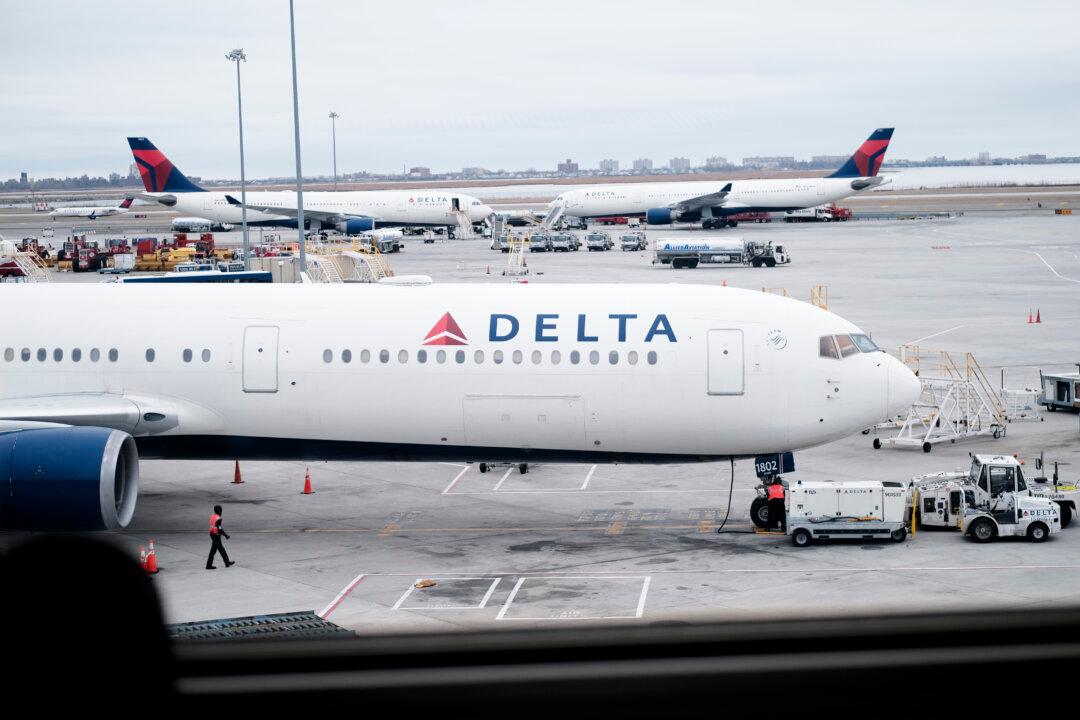Delta Air Lines continued to see a high number of flight cancellations and delays on July 22 as the company tried to resolve system disruptions caused by the recent global IT outage.
The disruption was triggered by technical issues with a software update on Microsoft systems on July 19, which took many networks out of service. The outage affected sectors that included banks, tech firms, airports, and logistics companies.





